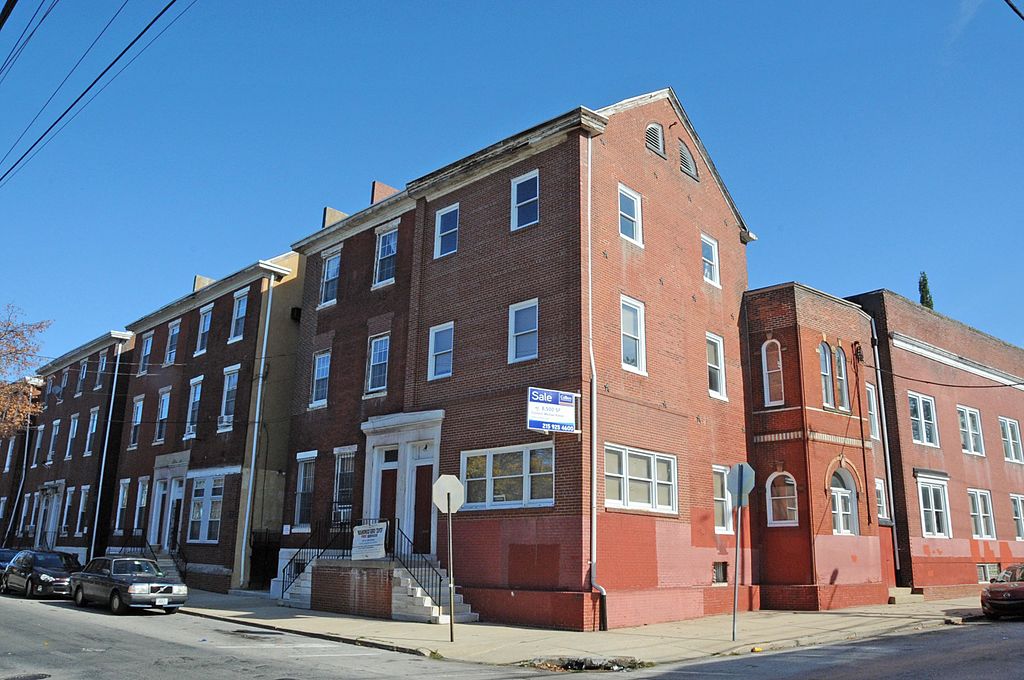National Housing Crisis Taskforce
In partnership with Accelerator for America

Introduction
America’s housing crisis has reached a tipping point. No longer limited to the coasts, cities and metropolitan areas across the country are experiencing a supply crunch, rising rents, and tough questions about housing attainability. Stymied by congress, the federal government has offered few solutions: credit enhancements here, a blueprint there. At the same time, states, localities, and private actors have begun to take the crisis into their own hands. Montgomery County, MD, and Atlanta have both launched exciting new housing development entities. More than 800 states and localities have created housing trust funds. Cities and states are liberalizing land use, expediting permitting, and encouraging transit-oriented development. Cities, states, investors, developers, philanthropies, and others recognize that the housing crisis requires action and are driving widespread innovations and novel solutions. These organizations are trying to achieve bottom-up change in a system that is federalized, financialized, and fossilized.
To identify, concretize, and catalyze the scaling of the most promising innovations in housing production and preservation, the Nowak Metro Finance Lab at Drexel University, in partnership with Accelerator for America, launched the National Housing Crisis Task Force in July 2024, an ambitious, two-year project. The Task Force will focus on innovations in five key segments on the housing development process: land, construction, capital, regulation, and delivery. Bringing together these five segments will allow for a holistic evaluation of what’s working and what’s needed to ensure a brighter future for America’s housing.

Task Force Co-Chairs Susan Thomas, Mayor Andre Dickens, and Mayor Justin Bibb in a panel moderated by former HUD Secretary and Task Force member Henry Cisneros.
The bi-partisan Task Force is co-chaired by Gov. Spencer Cox of Utah, Mayor Justin Bibb of Cleveland, Mayor Andre Dickens of Atlanta, and Susan Thomas, President of the Fifth Third Community Development Corporation. It comprises 28 government, non-profit, and business leaders who will create a platform to share and replicate what’s working locally, nationally and internationally. Task Force members include Henry Cisneros, who served as HUD Secretary under President Bill Clinton, and Pam Patenaude, who served as Deputy HUD Secretary under President Donald Trump. The Task Force also includes a Mayors’ Implementation Committee, chaired by Mayor Quinton Lucas of Kansas City and Kate Gallego of Phoenix.
 700 block of North 8th Street in Philadelphia. Founded in 1952 by the Quakers to create affordable housing in an urban setting.
700 block of North 8th Street in Philadelphia. Founded in 1952 by the Quakers to create affordable housing in an urban setting.
Project Objectives
Our objectives are threefold:
-
To find innovations for state, local, and private housing policies and practices, across land, construction, capital, regulation, and delivery, that have the highest potential for transformative impact.
-
To produce a platform and roadmap for scaling and replicating these innovations across the US housing ecosystem, resulting in new policies, programs, and products that produce and preserve housing across all income levels in every part of America that needs housing.
-
To recommend changes to federal, state, and local policies that could deliver faster and better housing solutions at a lower cost across market-rate and subsidized-affordable housing projects.
Project Overview
In order to meet our objectives, we will focus on state, local, and private innovations in land, construction, capital, regulation, and delivery to create faster, better, and more attainable housing. We will seek to standardize and model ordinances that can be easily adopted by states and localities without having to reinvent the wheel. We will focus on efforts to unlock increased development through innovative financing and land disposition tools that can lead to easier development for both market-rate and subsidized-affordable housing projects. This scope will also encompass novel uses of federal funding streams and calls for reforms to legacy federal programs.
As such, we will conduct interviews, literature reviews, and search the field in the US and abroad for the most promising practices. We will develop model legislation, term sheets, and program terms. We will highlight case studies and best practices from around the country. We will focus on changes to programs and regulations across the federal government, from HUD to Treasury, DOE to DOT. Finally, we will focus on delivery mechanisms, including the need for new kinds of local institutions and intermediaries and new approaches to governance.
Key Deliverables
-
A Housing Policy Innovations report, meant to highlight what’s working, and what is not working in the areas of land, construction, capital, regulation, and governance in housing;
-
An Innovative Housing Practice Toolkit so that practitioners can scale and replicate innovations in policies, products, and processes to spur real change in the housing sector;
-
A policy agenda for local, state, and federal policymakers, including concrete actions needed by federal and state governments to unlock local innovations; and
-
Four housing implementation cohorts, anchored by leading participating cities, demonstrating how the Housing Toolkit can be put into action. These cohorts will coincide with at least two Housing Exhibitions, modeled off of the European International Building Exhibition model
We’ll have more to announce on taskforce leadership and membership in the coming weeks, and please sign up for The New Localism newsletter to learn more about this and other Nowak Lab initiatives.